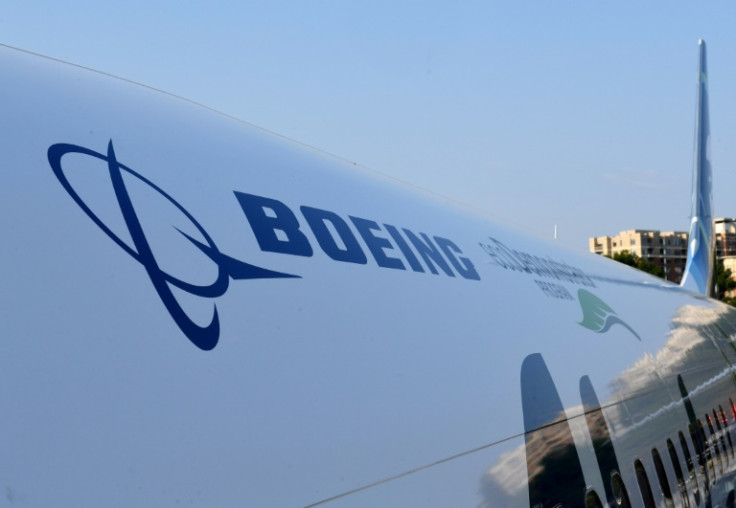Boeing Reports Another Loss In Q1, But Confirms Forecast

Boeing reported a bigger-than-expected quarterly loss Wednesday due to persistent quality control problems with its jets, but shares rallied as it maintained key medium- and long-term targets.
The company reported a loss of $425 million, compared with a $1.2 billion loss in the year-ago period, reflecting the continued drag from supply chain issues across its commercial and defense businesses.
Boeing's revenues came in at $17.9 billion, up 28 percent from the year-ago period and topping analyst expectations, but under the level of the pre-pandemic 2019 first quarter.
The planemaker affirmed its full-year outlook for operating cash flow, a key metric, and for 737 plane deliveries in 2023.
"We are progressing through recent supply chain disruptions but remain confident in the goals we set for this year, as well as for the longer term," said Chief Executive Dave Calhoun.
"Demand is strong across our key markets and we are growing investments to advance our development programs and innovate strategic capabilities for our customers and for our future."
Boeing's commercial plane program has been beset with various manufacturing and quality control issues that have limited deliveries for its top-selling jets, the 737 and 787.
The most recent issue stems from a supplier part problem on the 737 that will affect near-term deliveries. However, Boeing still expects to lift production on the plane later in 2023 and again in the 2025/26 timeframe, the company said in a press release.
The latest 737 issue will mean some planes won't reach airline customers in time for the summer travel season, Calhoun said.
"It costs some real money, so apologies everyone," Calhoun said on CNBC, while adding that the company had anticipated some delays when it set earlier targets.
"We knew we would have to contend with issues over the course of the year," he said. "They're getting smaller and they are getting more contained, but that's what happened in this case.
Calhoun said the cadence of the MAX production ramp-up is determined by supply chain challenges rather than demand.
He said the current travel market is "in a demand-crazy moment."
Costs have also been elevated due to rework needed on undelivered 737 planes that accumulated during the 20-month grounding of the jet following two fatal crashes.
Boeing had about 450 planes in storage at one point after the MAX was finally cleared to resume flights in November 2020. The number is currently in the low-200s, Calhoun said.
On defense, Boeing disclosed a new $245 million charge of one-time costs connected to the KC-46A Air Force tanker, also related to supplier issues.
Third Bridge analyst Christopher Raite described Boeing's report as "mixed," with the company's confirmation of earlier targets and growing backlog of orders offsetting the disappointing bottom-line result.
"While Boeing's reported results continue to lag the recovery in the post-Covid aerospace industry, there are several bright spots for the company," Raite said.
Shares jumped 3.6 percent to $209.46 in early trading.
© Copyright AFP 2024. All rights reserved.







